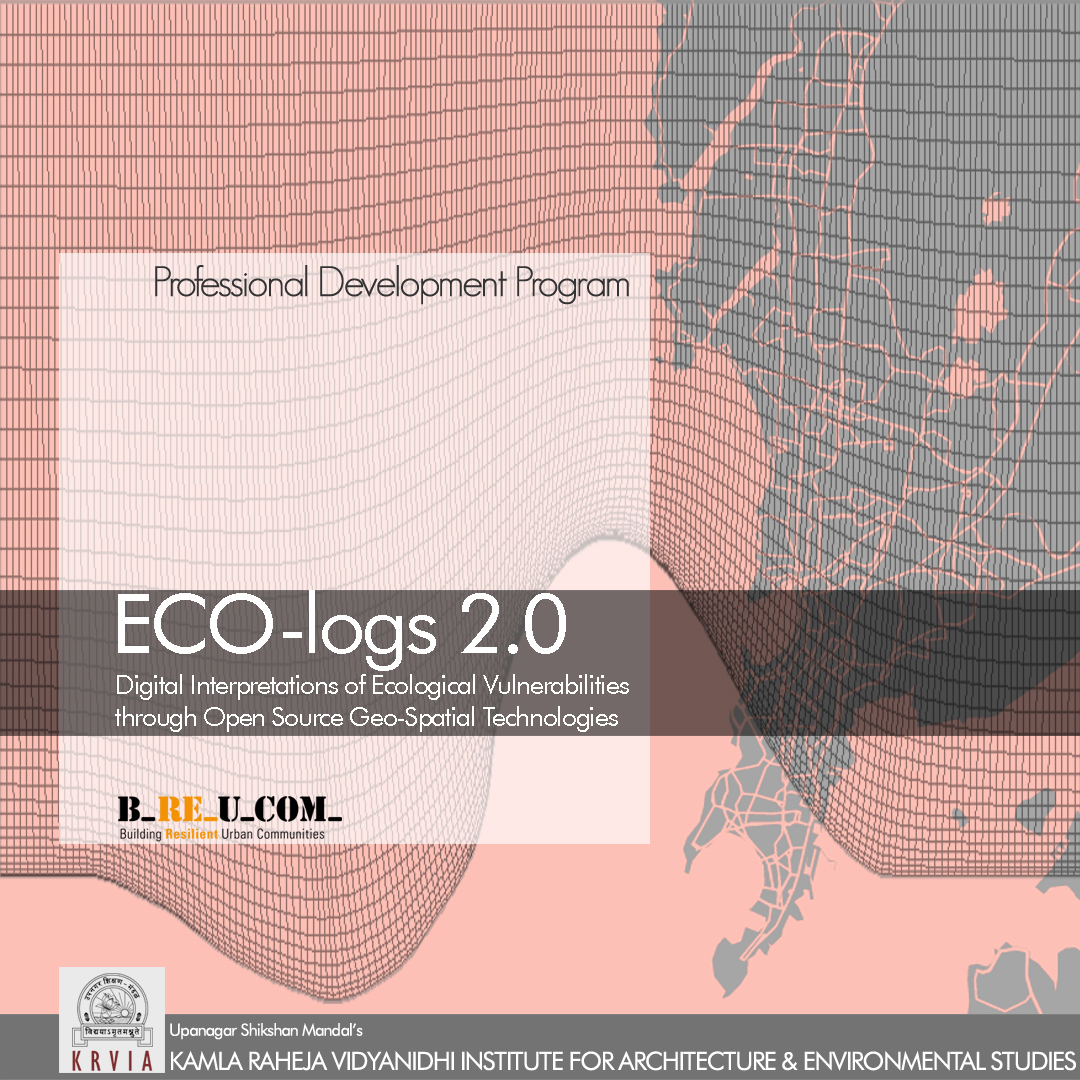Eco-LOGS 2.0 - Digital Interpretations of Ecological Vulnerabilities through Open Source Geo-Spatial Technologies
Course Name: Eco-LOGS 2.0 - Digital Interpretations of Ecological Vulnerabilities through Open Source Geo-Spatial Technologies
OCW type: PDP
Higher Education Institution: Kamla Raheja Vidyanidhi Institute for Architecture and Environmental Studies (KRVIA), Mumbai

Description of course
Aim:
To focus on visualizing, analyzing and interpreting environmental data using the open source platform Q GIS (Geographical Information System).
Course Objectives:
To introduce participants to using open source geospatial mapping technologies.
To equip participants a basic understanding of mapping vulnerabilities in the cities and peri-urban areas of the global south
To map ecological vulnerability as a sample output for use in spatially-oriented adaptation planning.
Learning Outcomes:
The participants will be able to:
- use open-source technologies to map the urban landscape
- organize the concepts of working with layers and attributes
- analyse the mapped data to generate logical learnings from the site
Course Structure
Course Duration: 14.5 hours spread over 2 days
Course Frequency: Once a Year
Course Format:
The programme is designed as a series of online lectures by the instructors, followed by a discussion with the participants.
Participants are encouraged to interact with the instructors during the interactive session.
Course Content
Prerequisites for participation: The participants with a Bachelor's degree in Architecture/Planning. Participants enrolled in Postgraduate programs in Architecture, Landscape Architecture, Urban Design, Urban Planning, Conservation, or related fields will be given priority. Other applicants with a keen interest in Urban Studies can also apply.
Course Syllabus:
The participants shall work together with the mentors, to conceptualize the investigative and mapping process of ecological vulnerabilities and strategize on building resilience in the given situations, in selected sites.
Session 1 Introduction to Q GIS-Fundamentals
Session 2 Q GIS-Basics operations
Session 3 Introduction to Case Sites & Working Session
Session 4 Mapping Workshop
Session 5 Final presentation by participants and Concluding Session.
Course Assignments: The participants are expected to work hands-on in smaller groups on the Open Source Q-GIS Platform with the base data provided by the institution to come up with layered geo referenced maps which the participants will use to analyze and get answers.
Expected time spent on course:
Time spent in hours: 12 hours 30 minutes
Time spent in ECTS (European Credit Transfer and Accumulation System): 0.5 ECTS
Course Grading
Assessment Criteria and Distribution of Marks:
The final presentations by the participants and the work they conducted and their understanding of the topics discussed are assessed.
Course Evaluation
Evaluation Procedure & Criteria:
Deans and Academic advisors evaluate and comment upon the PDP structure before the course in conducted after the PDP, participant evaluation feedback analysis obtained through the feedback forms is made available to the PDP team.
Faculty Evaluation:
Interaction during the presentation by the mentors.
Student Evaluation:
Standard form has been made available at the end of the session for the participants to fill it and to suggest their learnings as well as regarding the points of improvements for the course.